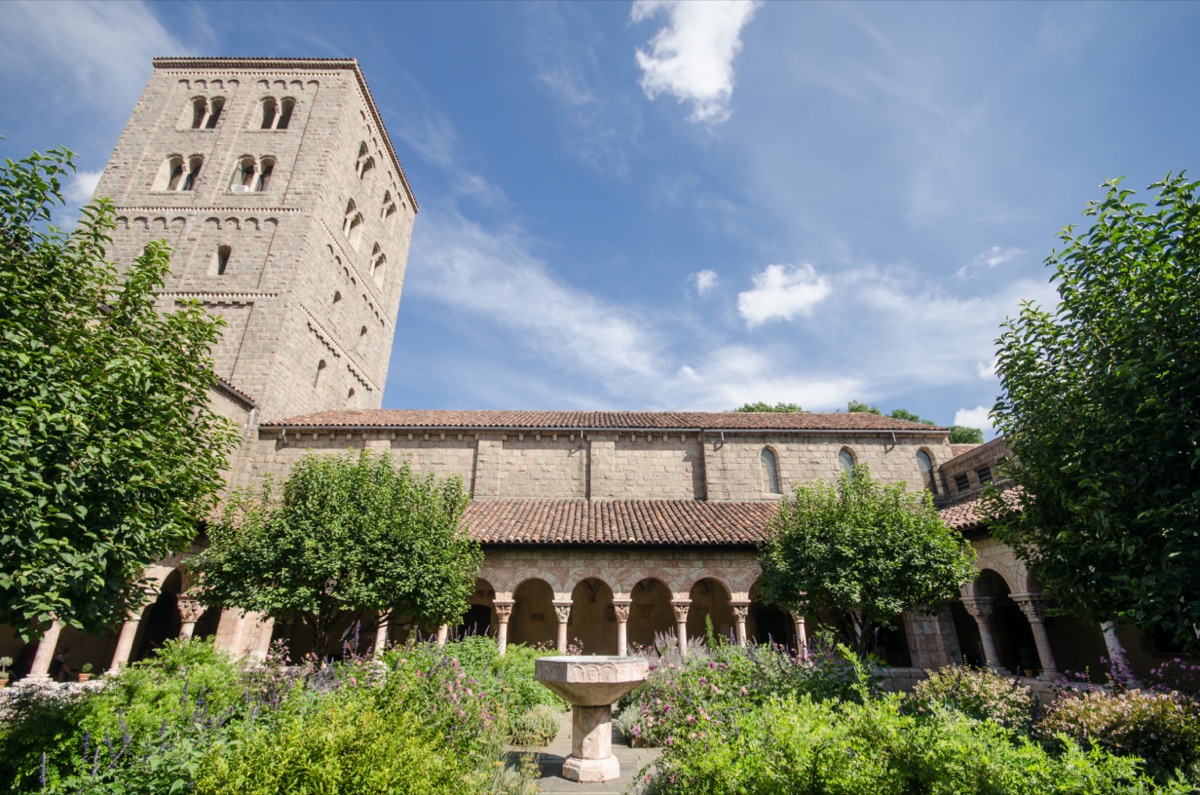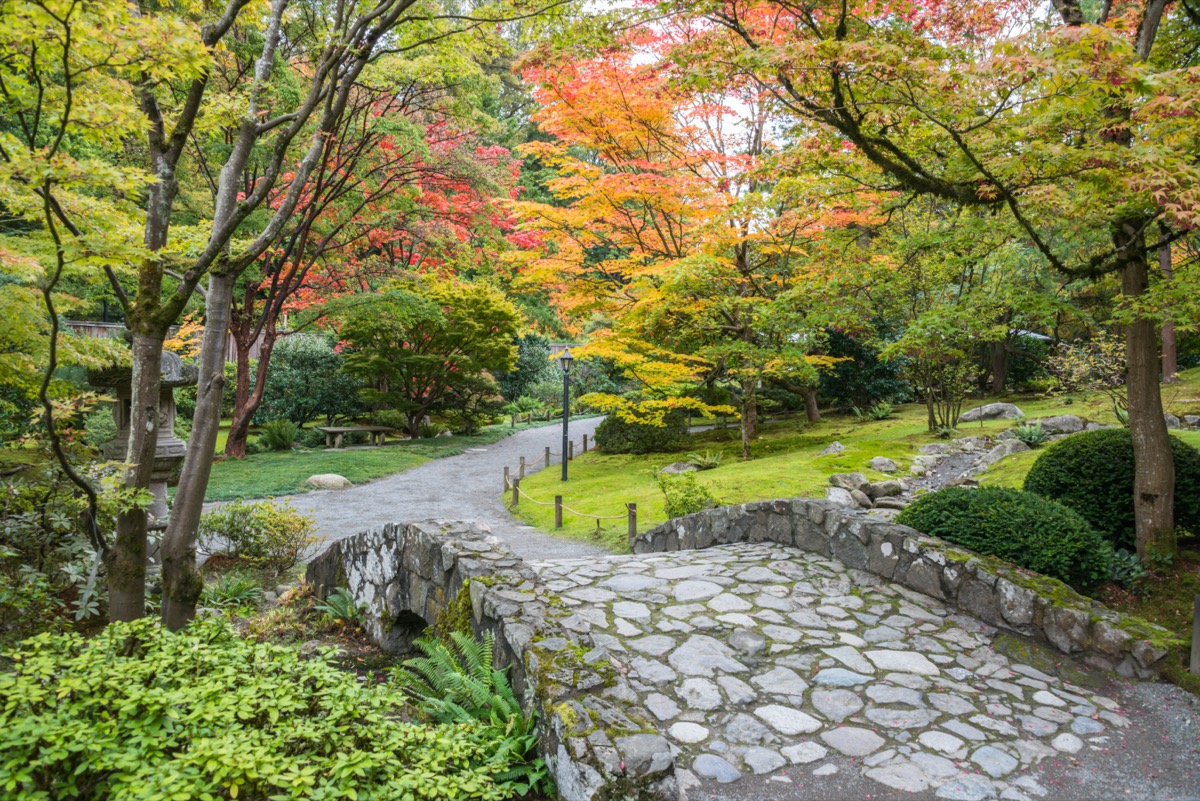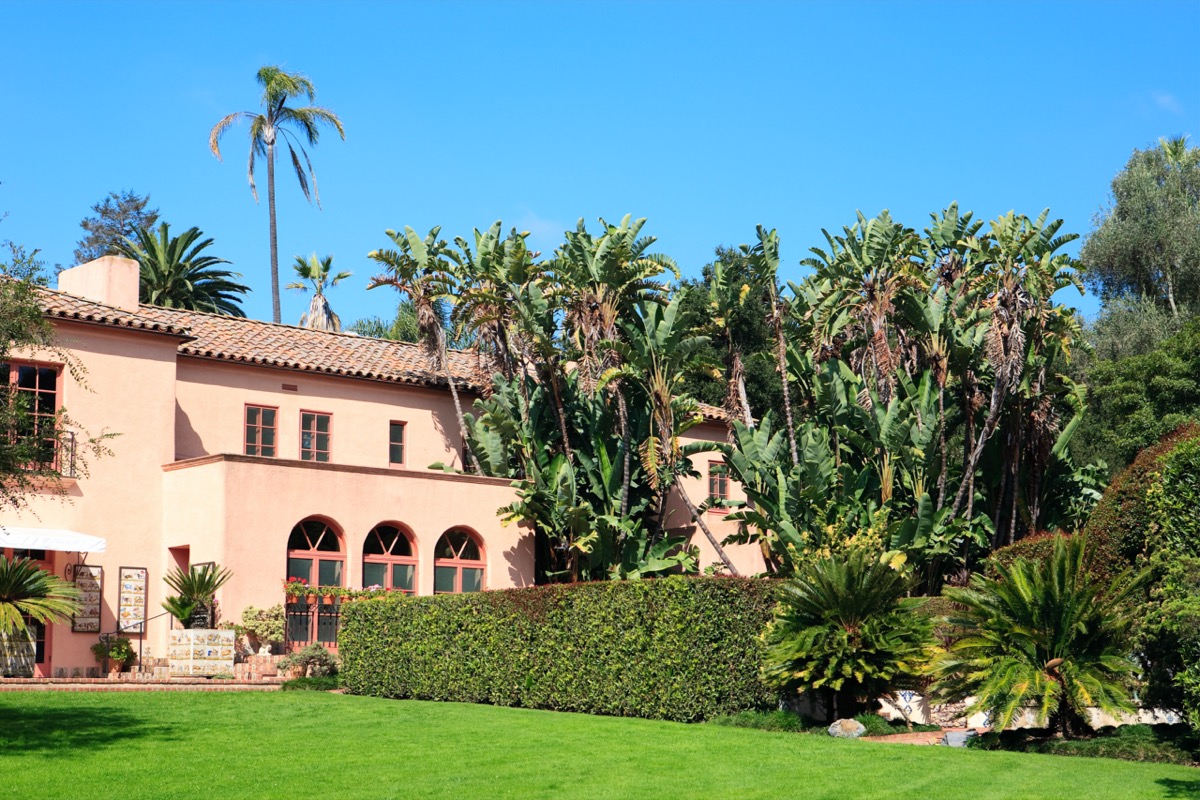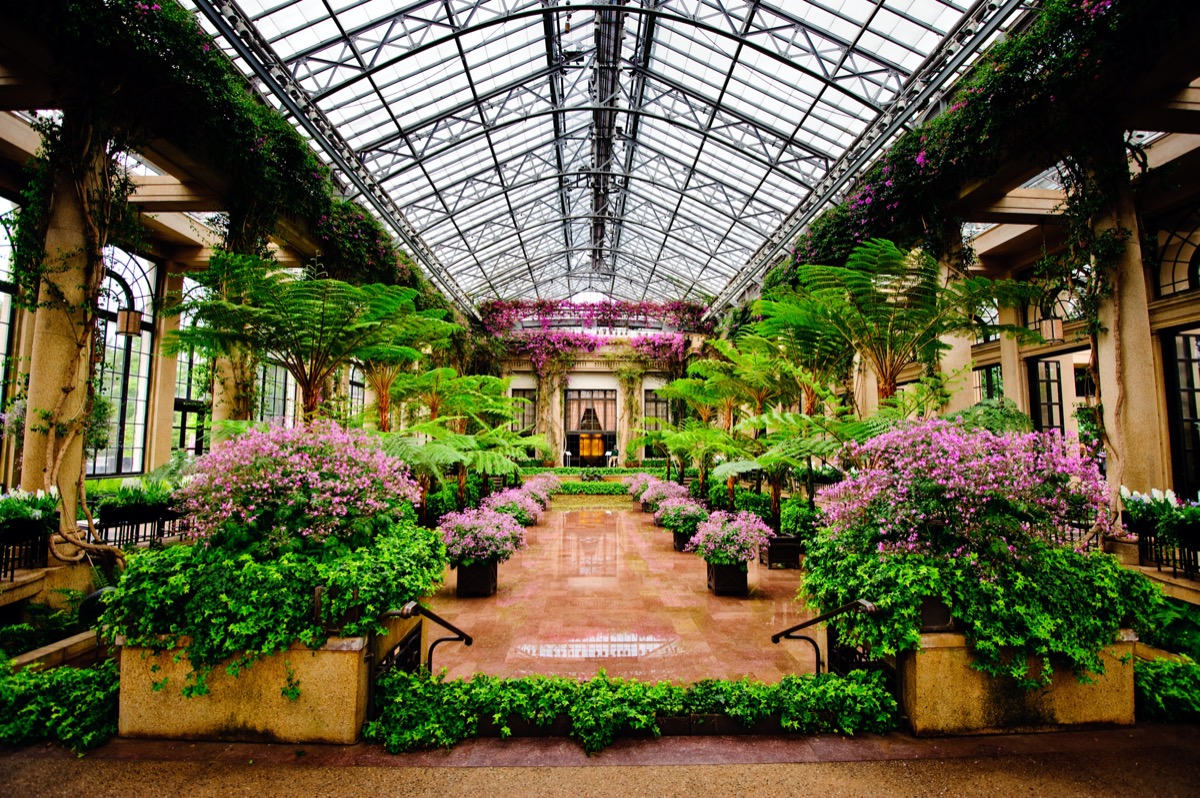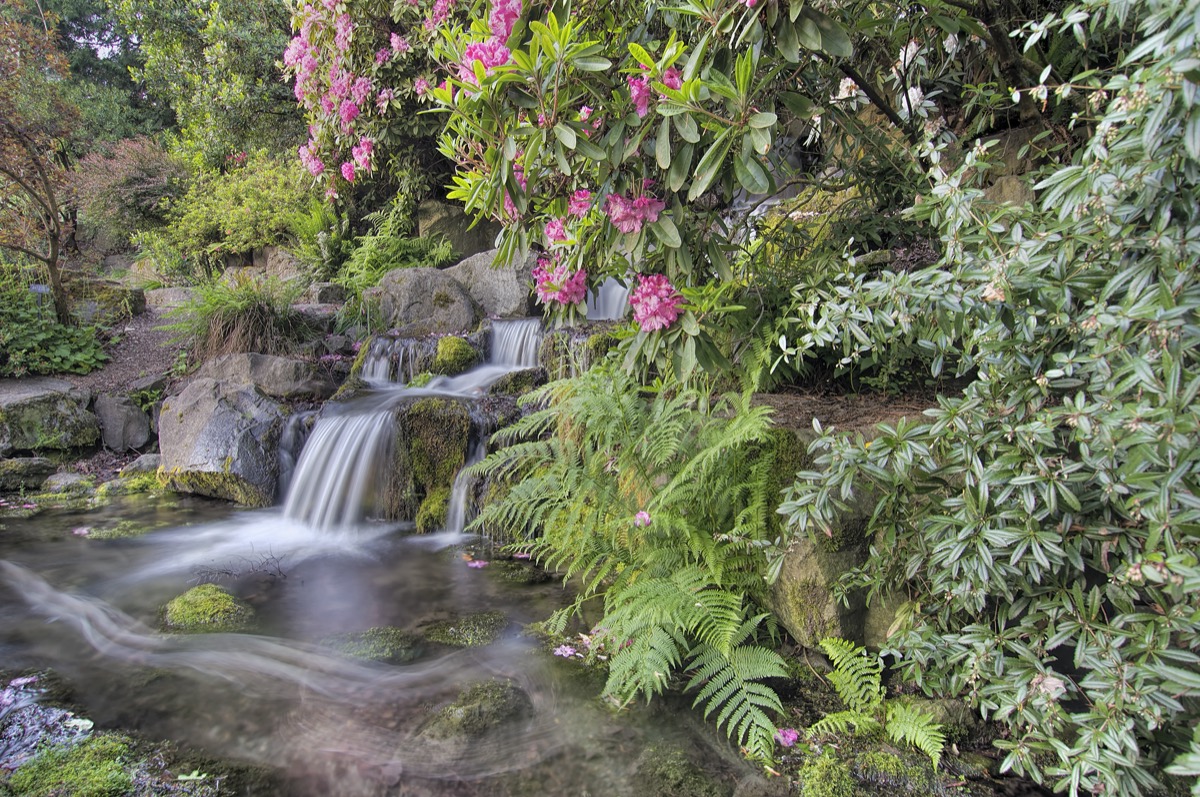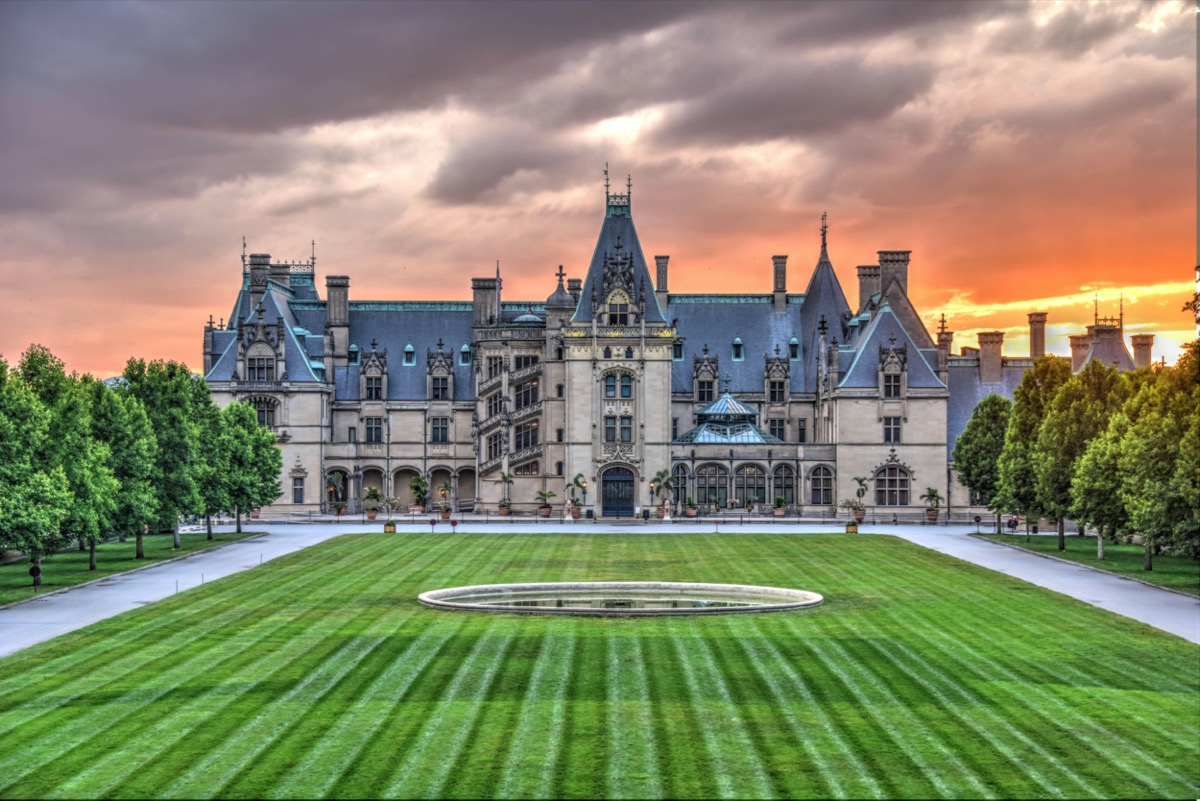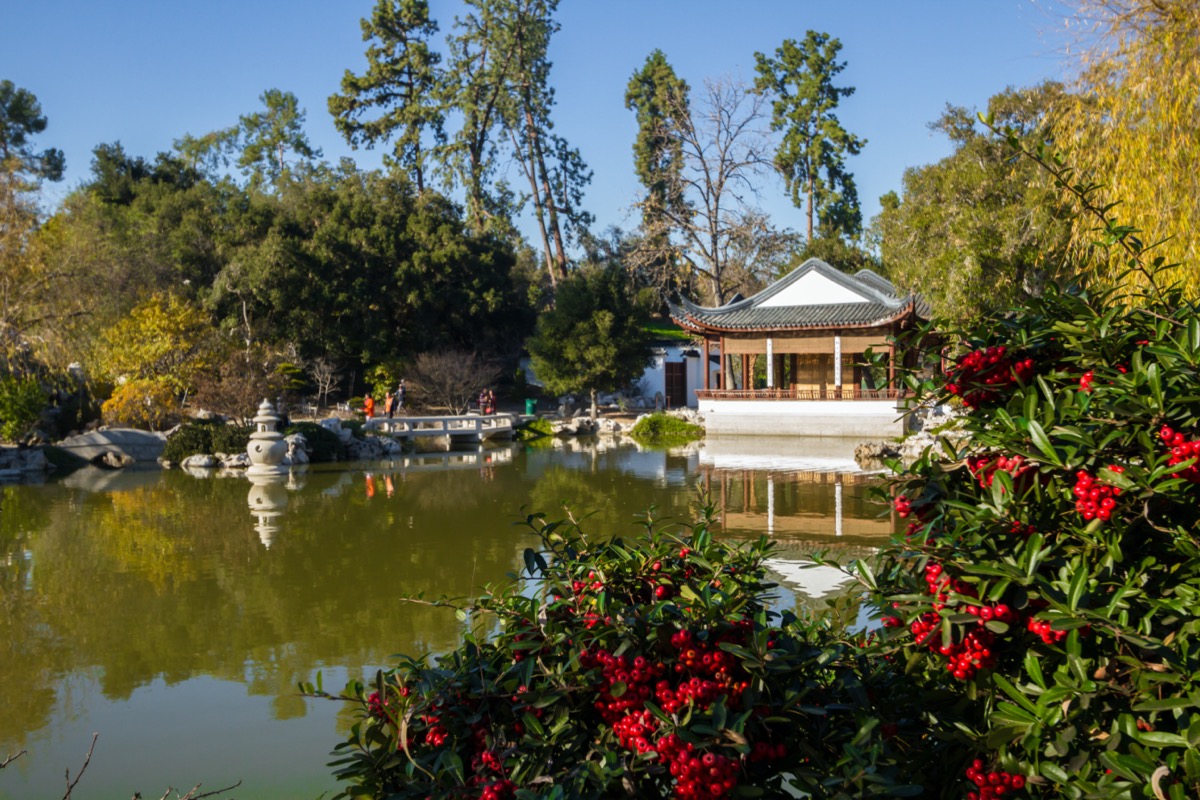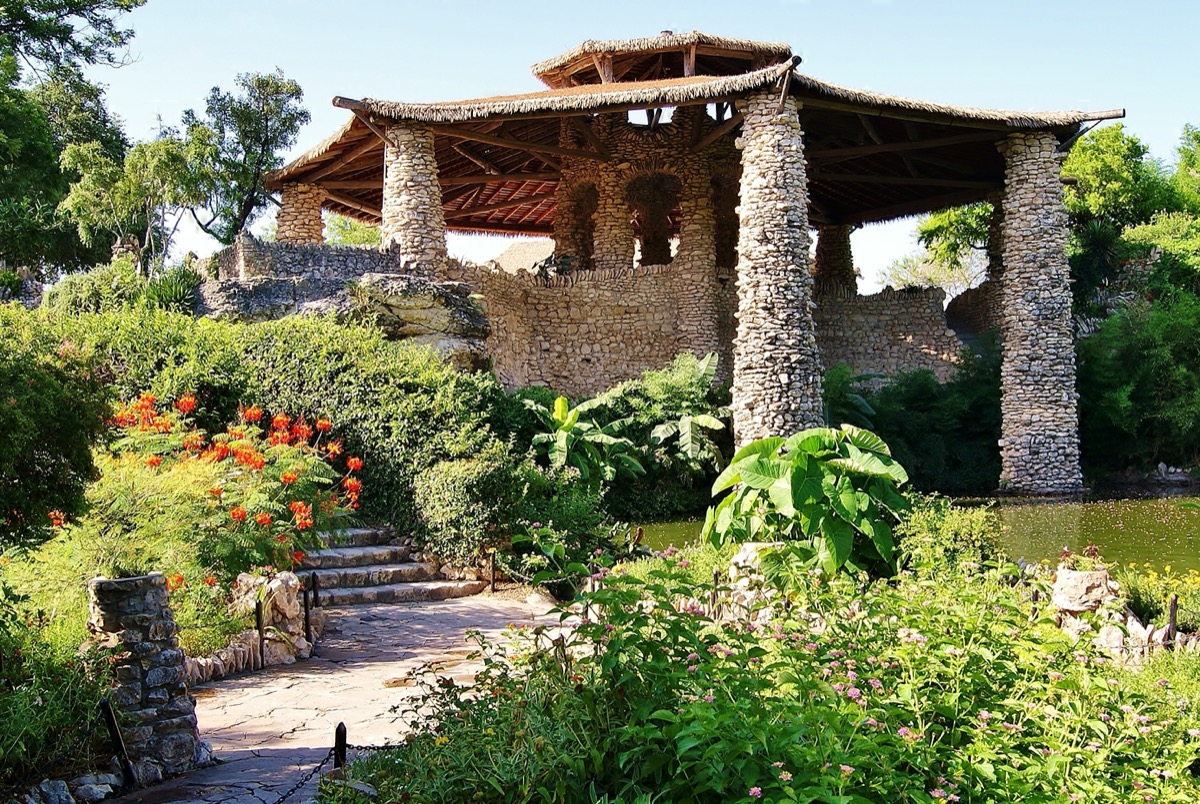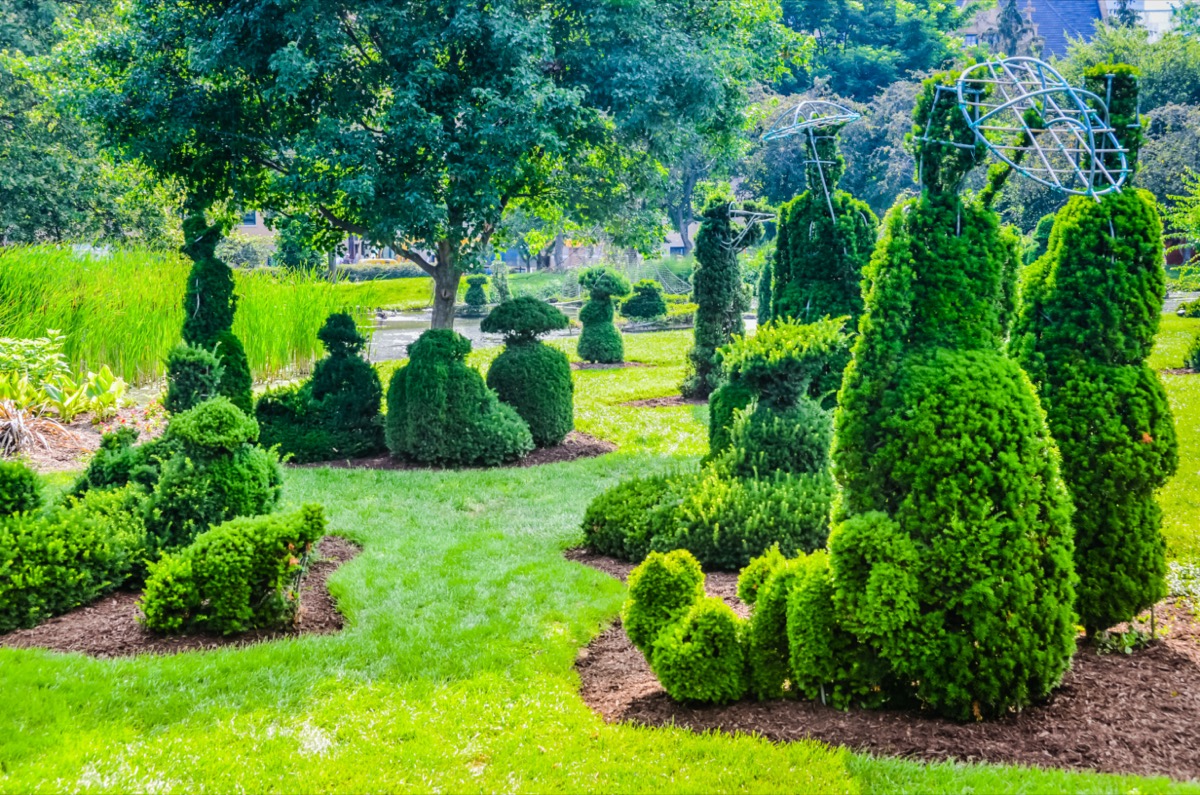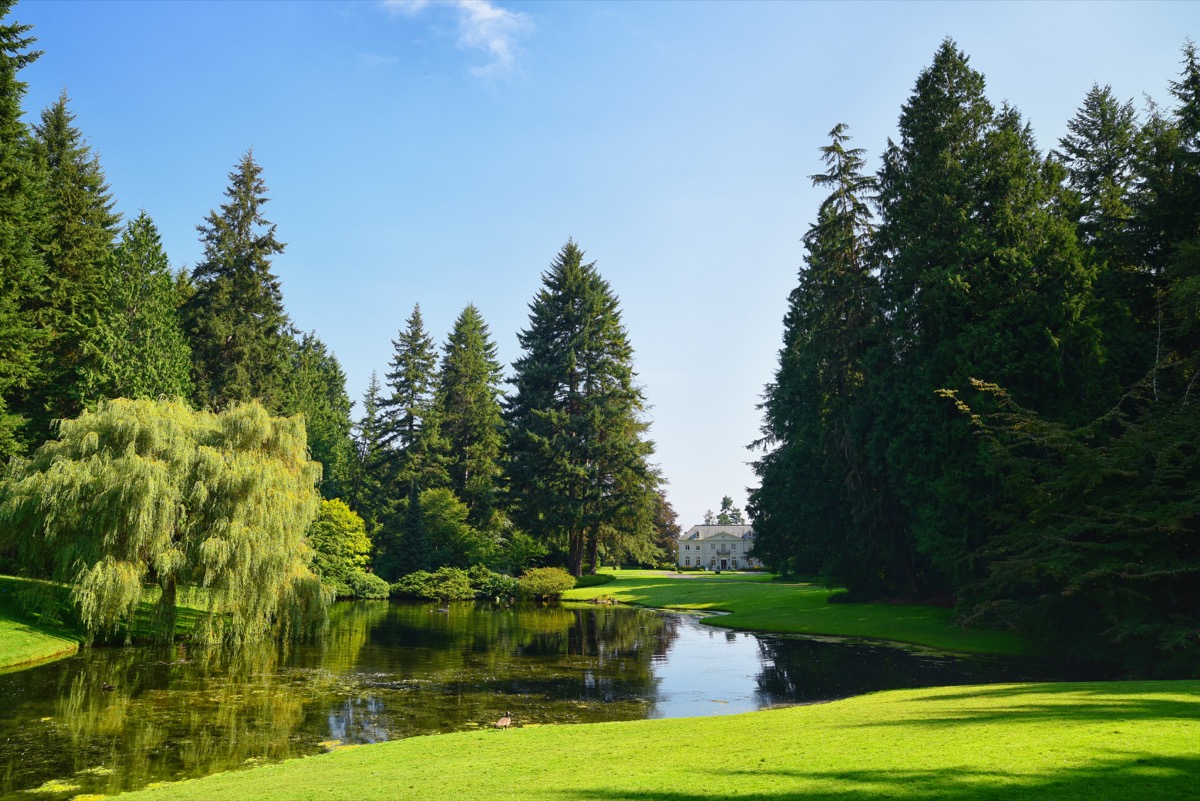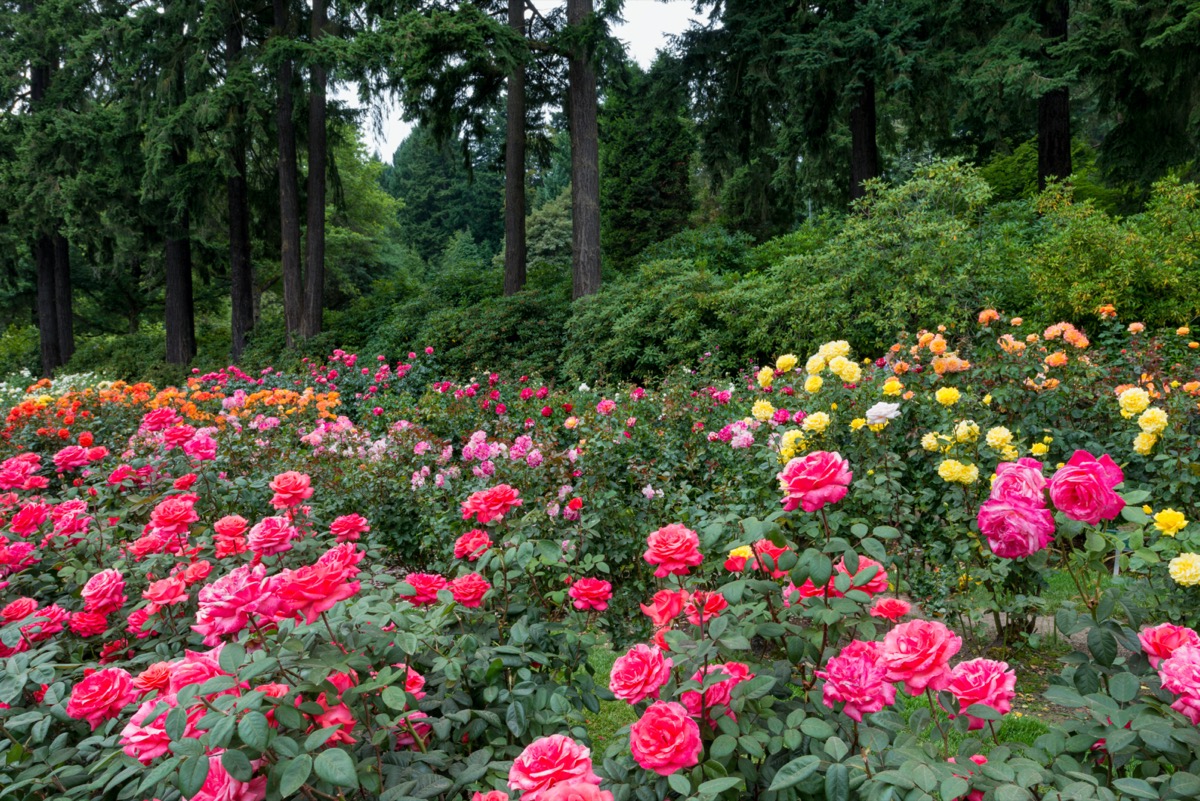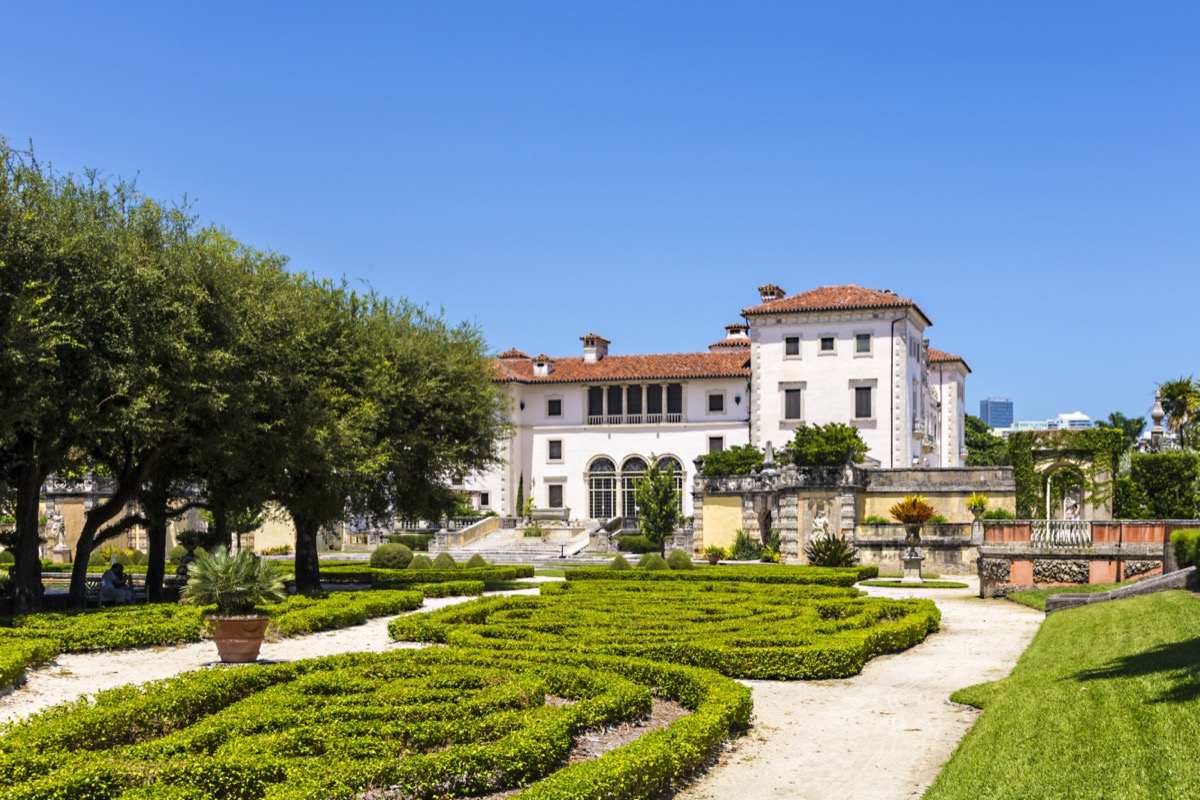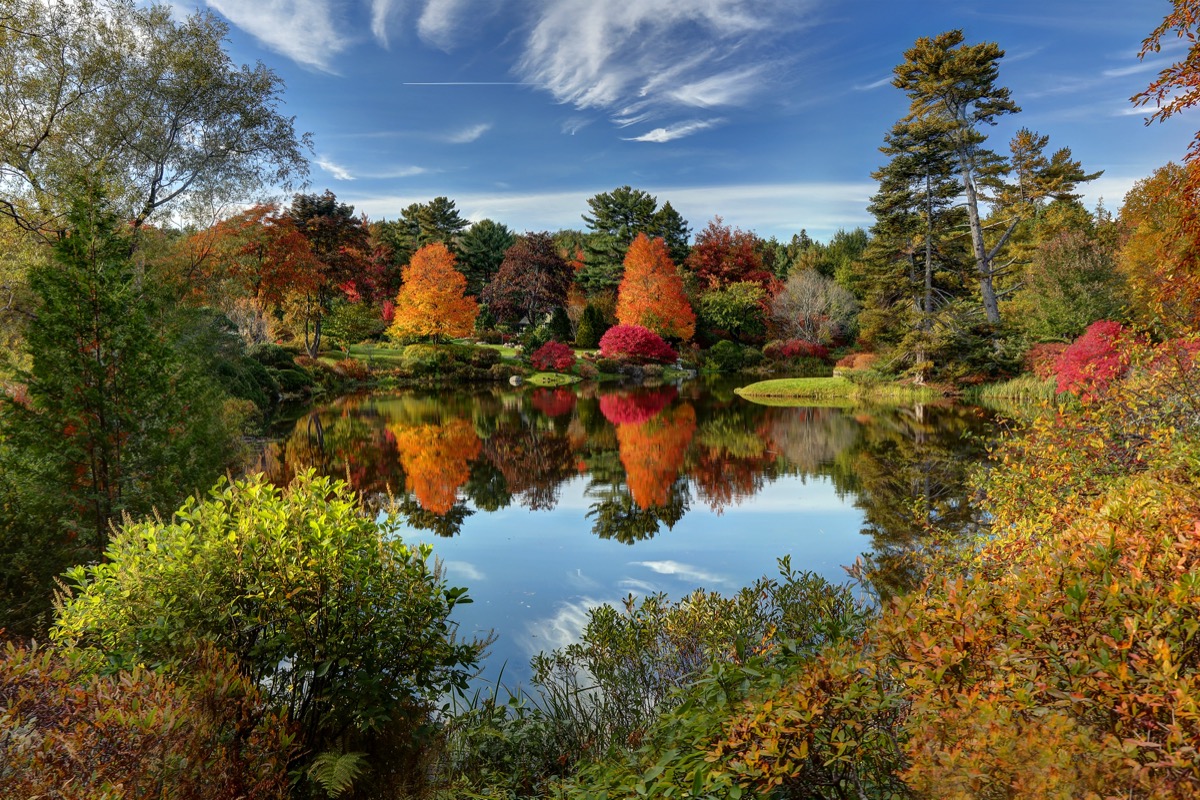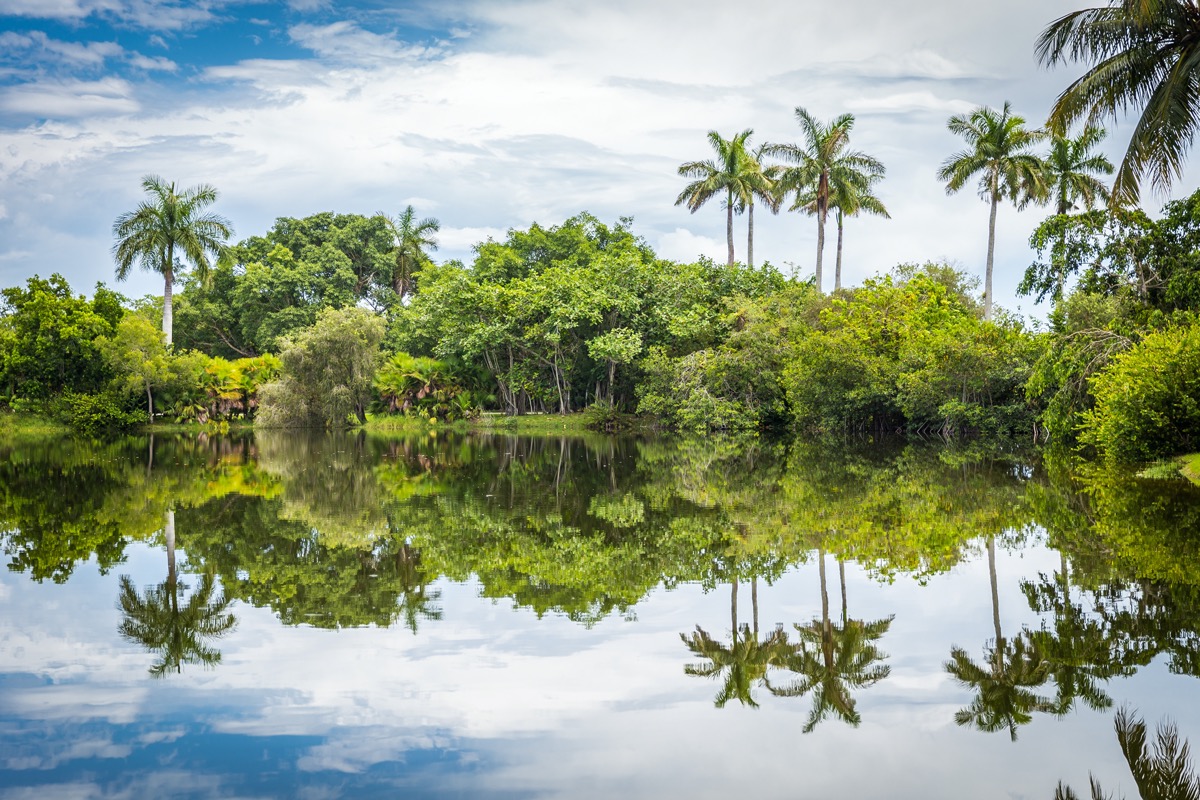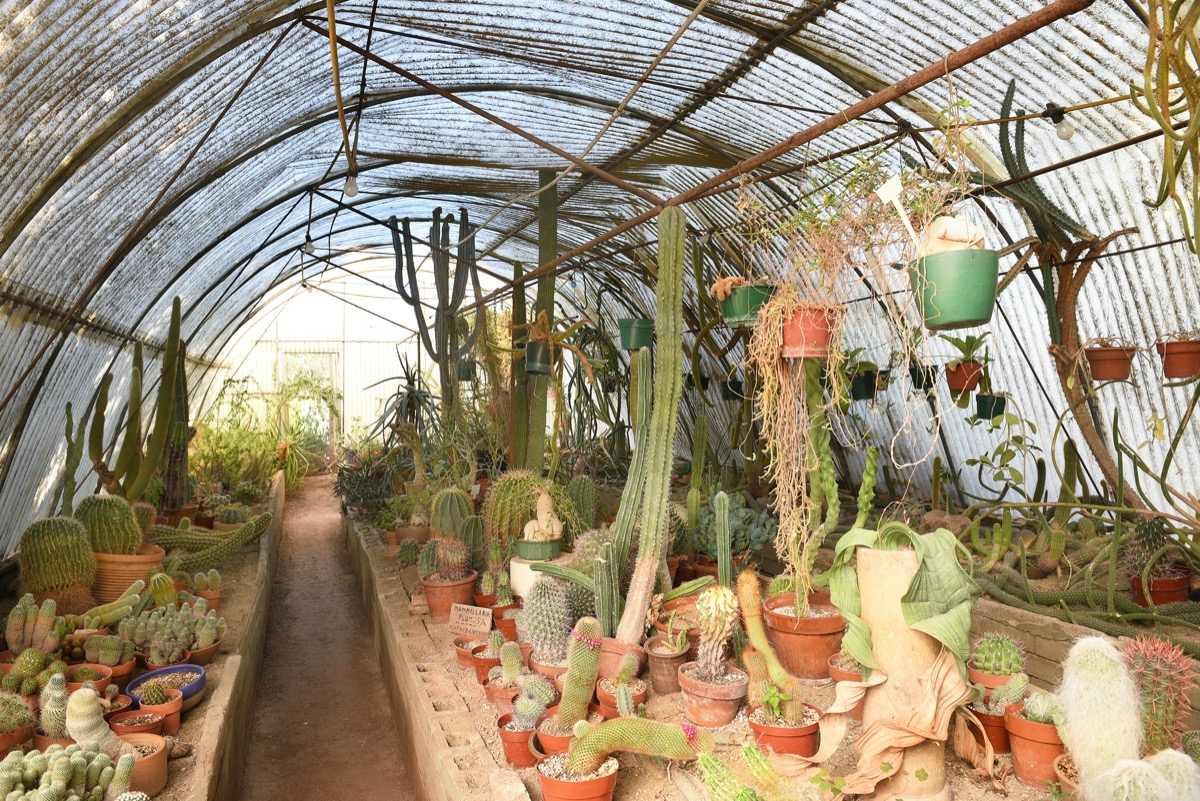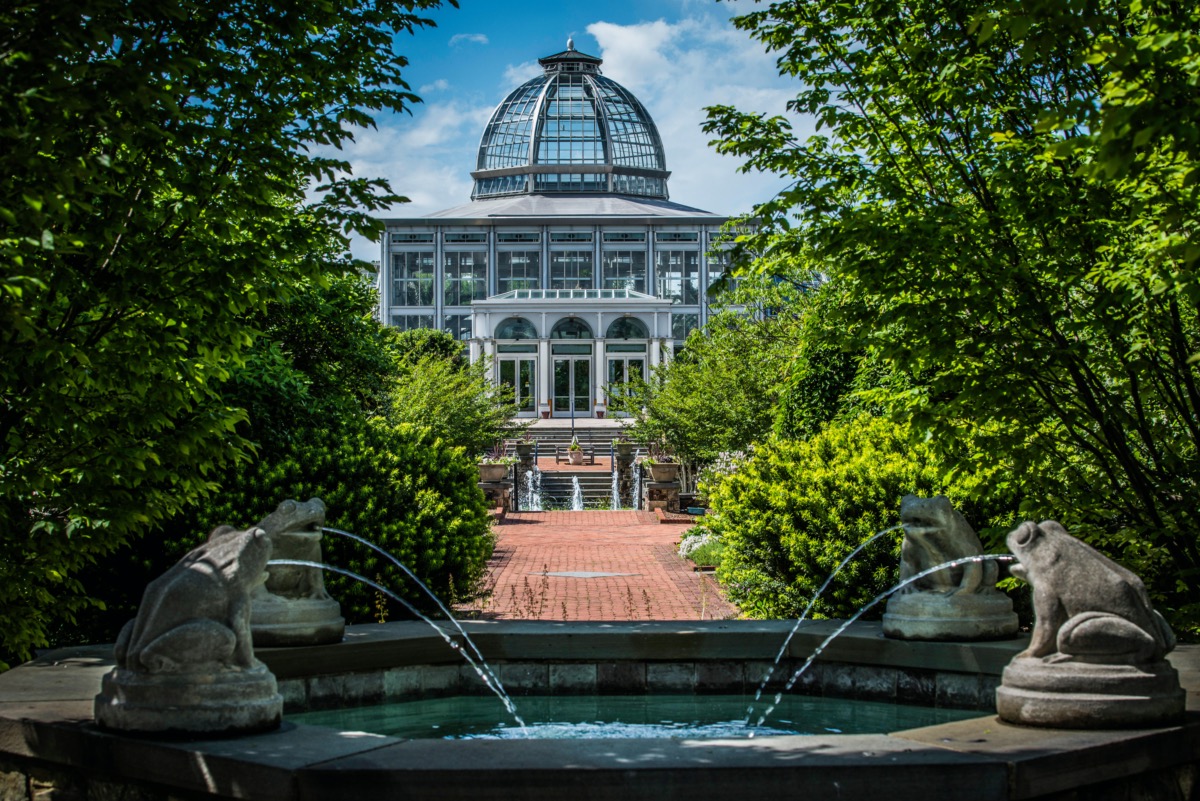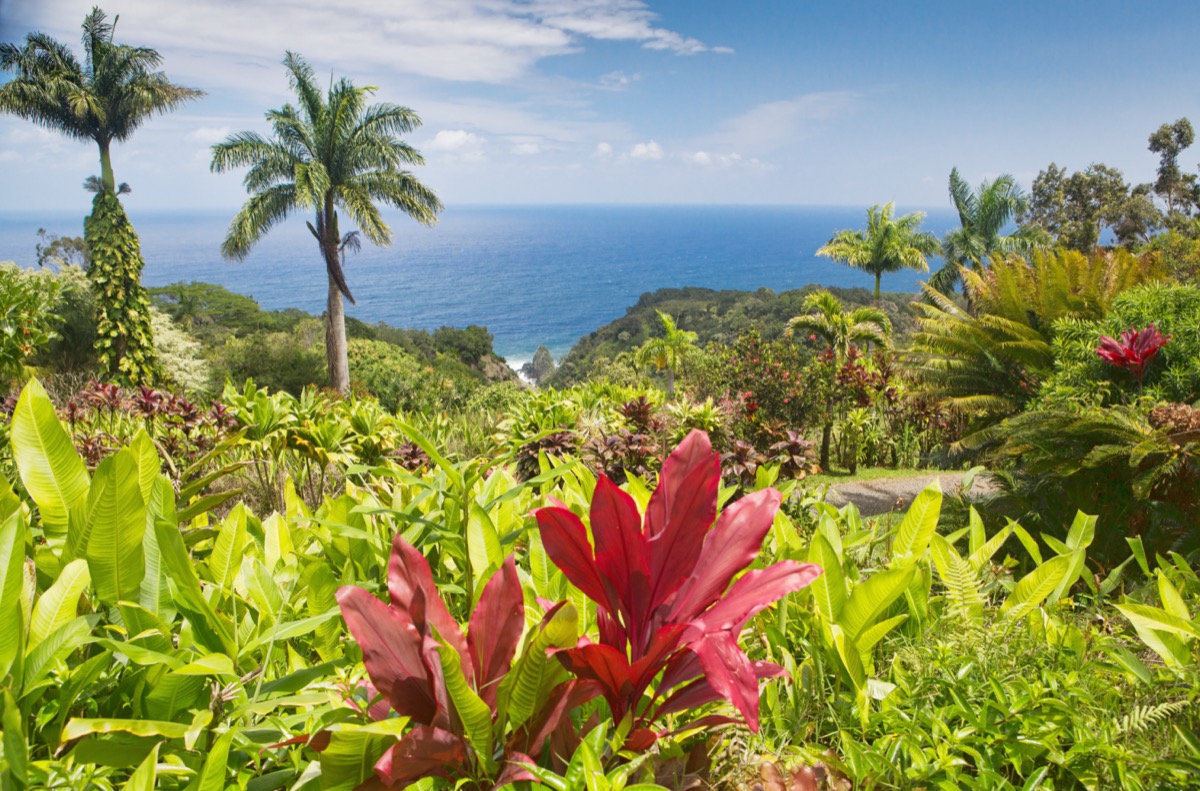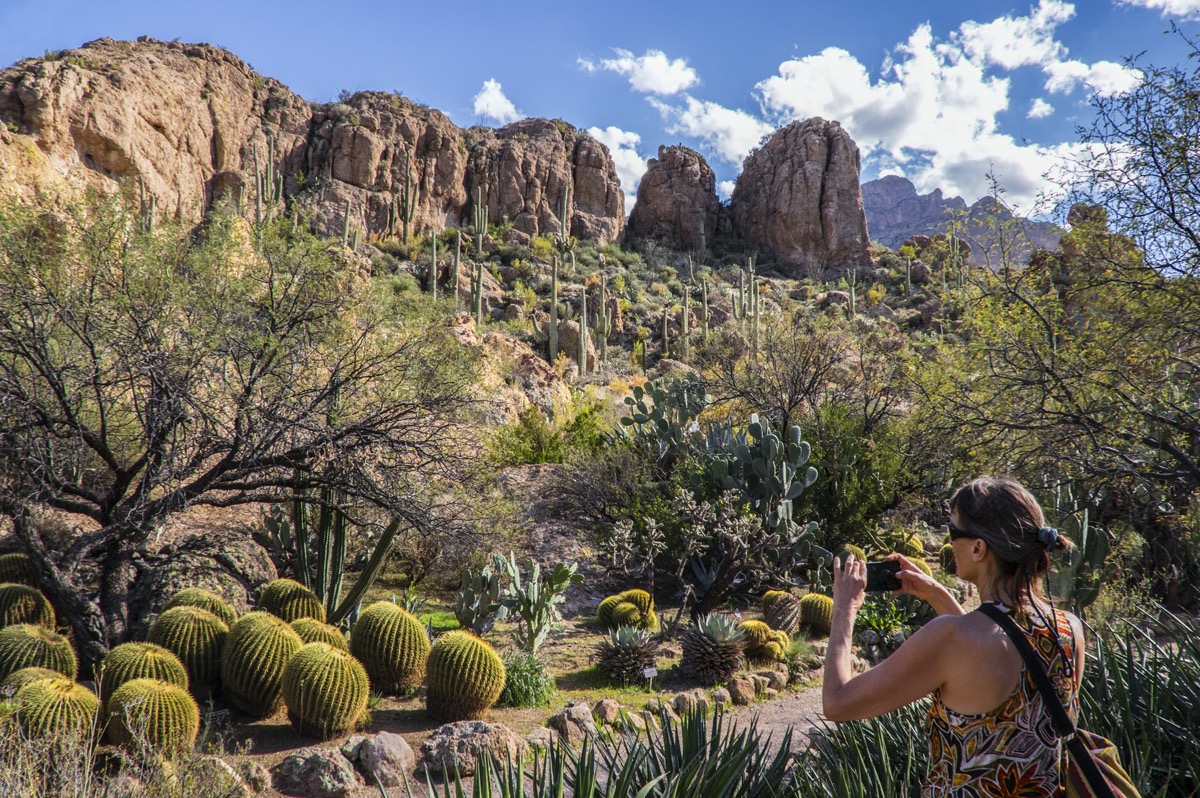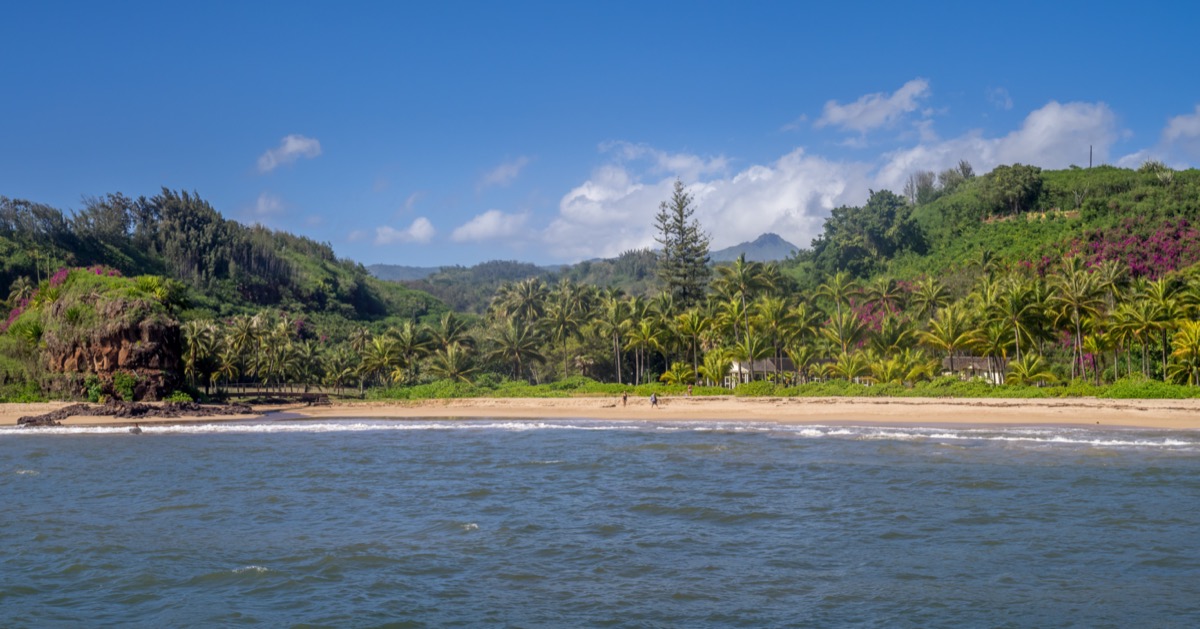Editor’s Note: Some of these gardens remain closed to the public as a result of COVID-19. But read on and take a virtual tour of the best secret gardens in the U.S. With more than seven million visitors each year, the Met is no secret, but did you know that there’s more than what lies behind the museum’s Beaux-Arts Fifth Avenue façade? Head north to Manhattan’s hilltop Fort Tryon Park and you’ll find another branch of the Met—The Cloisters, which is devoted to the art and architecture of medieval Europe. Accordingly, the museum’s three onsite gardens feature period-appropriate flowers and medicinal herbs—all of which were planted according to Middle Age literature. Unrivaled views of Hudson River and New Jersey Palisades don’t hurt, either. And for more destinations that will transport you, check out the 17 American Towns So Beautiful You’ll Think You’re in Europe. This hidden Seattle gem cozies up to the glittering shores of Lake Washington. The arboretum’s 230-acre collection is thematically arranged with a Woodland Garden, Pacific Connections Garden, and Winter Garden, among others. With its hardy honeysuckle, witch hazel, dogwoods, and paperbark maples, the latter is a real highlight from November through March. This stunning Montecito estate once belonged to Madame Ganna Walska, an eccentric opera singer, socialite, and garden enthusiast. While Walska spent 43 years curating the whimsical 37-acre Lotusland, it didn’t open to the public until 1993, nearly a decade after her death. Today, the fully organic botanical garden (the first in the U.S.!) honors Walska’s flair for the dramatic with more than 3,000 plant species and unique landscape design. Highlights include the bromeliads (AKA pineapples) and cycads, cone-bearing plants that were common during the Jurassic Period. And for more opulent mansions, check out the 23 Castles So Jaw-Dropping You Won’t Believe They’re in the U.S. This 1,100-acre attraction harbors more than just meticulous gardens—there are also ornamental fountains, art galleries, and a grand ballroom that houses a 10,010-pipe symphonic organ. Before Longwood was a public garden, the grounds were home to Pennsylvania’s Lenni Lenape tribe and then Quaker farmers. You can explore the area’s native plants in the Meadow Garden, a semi-recent addition that spans some 86 acres. As for other exhibits, there’s the Waterlily Display, Rose Arbor, Italian Water Garden, Banana House, and Orangery, just to name a few. Portland’s Japanese Garden gets the lion’s share of attention both online and in-person, meaning the city’s Crystal Springs Rhododendron Garden flies much more under the radar. It’s a shame, too, as the seven-acre woodland garden has an incredible collection of rhododendrons, azaleas, and other lesser-known, unusual plants, which can be viewed by way of idyllic bridges and shady paths. Birdwatchers will want to keep their eyes peeled as well; the garden is home to more than 90 bird species including Great Blue Herons and Bald Eagles. And for more awe-inspiring cascades, check out the 15 Waterfalls So Magical You Won’t Believe They’re in the U.S. Versaille has the Jardins du Château de Versailles, St. Petersburg has Peterhof Palace, and, wouldn’t you know it, Asheville has the Biltmore Estate. While George Vanderbilt’s turn-of-the-century 250-room château is often what draws guests, we’d argue the gardens are an even prettier sight. The lush grounds include a formal rose garden, rhododendron loop, and pool- and sculpture-laced Italian garden, all designed by Frederick Law Olmsted, the very man behind Manhattan’s Central Park. Believe it or not, this lush, 120-acre botanical garden lies just 12 miles north of downtown Los Angeles. Sixteen themed gardens—including the Camellia Garden, Shakespeare Garden, and Australian Garden—foster an astonishing collection of 15,000 different plant varieties. Curate a route to your liking, but don’t miss the Rose Garden as there you’ll find The Huntington’s pride and joy: a hybrid pink and yellow rose—AKA “Huntington’s 100th”—which was devised by the garden’s own curator.ae0fcc31ae342fd3a1346ebb1f342fcb San Antonio is home to a lot of top-notch attractions including the River Walk, the Alamo, and the Pearl District. Of course, we’d be remiss not to mention this underappreciated urban garden, which the city gave a $1.5 million facelift in 2008. Now, San Antonio’s lush Japanese Tea Garden features a 60-foot waterfall, koi-filled ponds, bamboo thickets, stone bridges, and an onsite restaurant. Best of all, admission is free since the park is publicly run. And if you’re looking to get away for the weekend, check out the 17 Stunning Islands That Americans Are Allowed to Visit Now. Columbus’s Topiary Garden holds a distinct honor: It’s the only park in the world based entirely on a painting. With dozens of topiaries, including more than 50 people, a handful of boats, a few dogs, cats, and monkeys, and a small man-made pond, the 10-acre garden is George Seurat’s iconic A Sunday Afternoon on the Island of La Grande Jatte come to life. For the most spot-on view of the grounds, head to the “As He Saw It” plaque where you can see through the eyes of the artist. If you’re looking for new ways to spend an afternoon outside, give Bainbridge Island’s Bloedel Reserve a go. The 150-acre forest garden, which fronts the Puget Sound, features 23 different natural and manicured landscapes. The garden’s main attraction changes seasonally; in spring and summer, it’s all about the azaleas, rhododendrons, and Chilean lantern trees, while in fall, the Japanese maples light up in fiery autumnal hues. Portland, AKA the “City of Roses,” is a treasure trove for budding botanists—you just have to know where to look. As the oldest continuously operating public rose test garden in the U.S., it should come as no surprise that this spot sports more than 10,000 blooms between its Royal Rosarian Garden, Shakespeare Garden, and Miniature Rose Garden. For future planning purposes, the best time to visit is May through September. Make sure your smartphone is charged up, too, as you’ll want to snap some shots of the downtown and Mount Hood view. This 50-acre Gilded Age estate can be found in the Coconut Grove neighborhood of Miami, right on Biscayne Bay. It’s hard to imagine now, but the Mediterranean Revival mansion was once the private winter home of businessman James Deering. Luckily—for those of us without a vacation home—Vizcaya’s ornate fountains, elaborate 17th- and 18th-century-inspired Italian gardens, and French-inspired parterres (geometric hedges) are now open to the public. If you’re familiar with Maine’s rugged Mount Desert Island, it’s likely you’ve been to Acadia National Park or spent a summer weekend in Bar Harbor. If you’re ready to add another excursion to your next trip, check out the Asticou Azalea Garden. The serene, Japanese-style stroll garden is brimming with azaleas, cherry trees, and water lilies that can be admired via a raked gravel path. If you live in the U.S. and love mangos or nectarines, you have one man to thank: David Fairchild. The esteemed American botanist, for whom this garden is named, introduced hundreds of exotic plants to the States before opening this 83-acre tropical garden in 1938. Today’s visitors will find the world’s largest bamboo collection, the only rainforest in the continental U.S., giant South American water lilies, and a number of rare palms, orchids, and tropical fruits. Roses and peonies not your thing? No problem! At Palm Springs’ Moorten Botanical Garden, cacti steal the show. The intimate, one-acre cactarium is run by Clark Moorten, a second-generation cacti collector whose parents did landscape design for the likes of Frank Sinatra, Bing Crosby, and even Walt Disney. Once you’ve adequately admired the geographically organized plants (there’s roughly a dozen biomes represented, including South Africa and the Mojave Desert), don’t forget to add to your own collection by hitting the nursery on your way out. With 50 acres of themed collections, this year-round botanical garden caters to every age and floral predilection. The Children’s Garden offers hands-on fun with trees to climb, dirt to dig, and butterflies to chase, while the 11,000-square-foot Conservatory—or “Jewel of the Garden”—wows with orchids, palms, and other exotic plants. After you’re done there, you’ll find 10 more awe-inspiring spots, including the lakeside Cherry Tree Walk, serene Asian Valley, and elegant Central Garden. Fun fact: Maui’s Garden of Eden owes some of its conservation success to the Beatles’ George Harrison. Yes, really! The guitarist just happened to be a neighbor of this North Shore arboretum, and he donated a chunk of the garden’s 700 species. That aside, the lush, tropical paradise begs visitors to lose themselves in nature with 26 acres of palm-shaded trails, coursing waterfalls, and wide-open ocean views. Arizona’s arid Sonoran desert may bring to mind dusty red earth and bone-dry tumbleweeds, but at this Phoenix garden, there’s an abundance of greenery. To explore the 140-acre grounds, take to one of five loops (each less than a mile) as they pass such spots as the Hummingbird Garden, Edible Garden, and Cactus and Succulent Galleries. For the best view, don’t miss the Sonoran Desert Nature Loop Trail, which affords panoramic mountain views. Nestled on Kauai’s picturesque South Shore, the 50-acre Lawa’i Valley refuge has the largest ex situ (“off-site”) collection of native Hawaiian flora including towering palms, flowering coffee trees, and vibrant coral trees. The oceanfront gem is only accessible via a 15-minute tram ride from the South Shore Visitors Center, but keep your eyes peeled as you motor along the coast—you could spot whales or dolphins before your visit even gets going. And for more stunning landscapes, check out the 50 Beautiful, Obscure Places in the U.S. You Should Visit This Summer.
